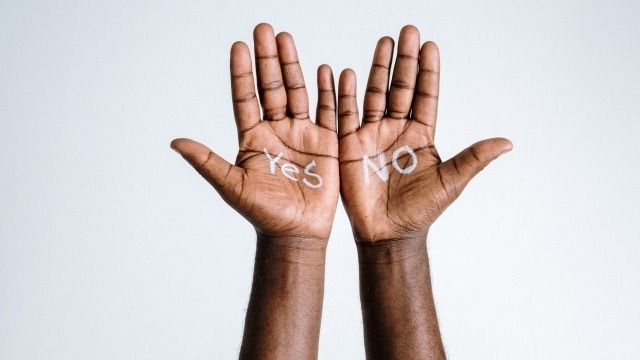Opinion: What does John Howard mean when he tells 'no' Voice voters to maintain the rage?

By Mark Kenny
A version of this article was originally published by The Canberra Times.
A telling weakness of the "no" campaign is that its substantive complaints go only to peripheral concerns whereas its core arguments rely on blatant falsehoods.
Claims such as that the Uluru Statement from the Heart is not the poignant one-page invitation with which we are familiar but rather, a secretive 26-page manifesto.
Lies that the Voice is the biggest constitutional change since federation, creates differential rights, is inherently divisive, and would be a "quasi-House of Lords".
The poisonous assertion that the unimpeachable Australian Electoral Commission has helped rig the referendum - an accusation of the most mendacious intent, given what we all know of America's current political crisis and its roots in Trump's pre-poll destruction of democratic confidence.
This shrillness is deeply depressing, if less surprising. The weaker a given case, the more stridently it tends to be put.
It is a high-volume low-honour strategy that has been effective so far, enabling the "no" side to assemble a peloton of the easily frightened, the permanently aggrieved, and the rankly opportune.
Which is not to say the proposed model is above contestation. Like public policy responses in every other field, its efficacy is unknowable in advance.
Tellingly however, no credible person has established that it would actually make the situation worse for First Australians or anyone else, which must surely be a threshold burden before rejection?
Parliament will have the final say on design and will be free to change its structure at will.
Labor's failure to convey this primacy-of-Parliament feature is disappointing. It has emerged as the "yes" case's chief vulnerability with undecideds - an exploitable suspicion from which all other scares can be leveraged. Resolve that in voters' minds and every other frightener is rendered moot.
Radical it is not, as the SA Premier Peter Malinauskas explained at Wednesday's launch in northern Adelaide. "If our forefathers and mothers can say 'yes' to universal franchise, if our great-grandparents can say 'yes' to waves of immigration, if our grandparents can say 'yes' in 1967, if our parents can say 'yes' to land rights, then this generation is capable of saying 'yes' to an advisory committee," he said.
At best, a successful referendum moves a divided nation forward, sharpens program efficiency, lifts Indigenous-specific policy above the partisan fray, and heralds a new self-respect within marginalised communities.
At worst, it doesn't make an appreciable impact on Closing the Gap and thus joins previous well- intentioned attempts to tackle problems stemming from genocide, dispossession and denial.
So, it will either do too much, too little, or, if you're shameless, both.
Those within a section of the Aboriginal community advocating "no" - people such as Victorian ex-Greens senator, Lidia Thorpe - are deluding themselves. Their aspirations fall at the first hurdle of electoral reality. If mainstream voters lack the stomach for an advisory committee, what chance a major re-ordering of power-relations? Far from advancing the cause of Indigenous self- determination, defeating the Voice serves exclusively those who hold such notions in contempt.
It is interesting to compare the approaches of the two main sides - the "yes" case, which seeks to inspire, and the "no" case which prefers that voters perspire using division, envy and fear to turn up the heat.
Noel Pearson's midweek advice to Voice advocates to "maintain the love" underscored this difference while defining also a widening civility gap which only a successful referendum can hope to close.
But not before it gets deeper still as when Gary Johns, a leader of the "no" campaign, advised First Australians to "learn English" having previously recommended blood tests to establish Aboriginality.
Or when Peter Dutton warned of the "elitist" "yes" campaign's $100 million war chest and raised doubts about the AEC's impartiality in accepting ticks but not crosses on ballot papers - in line with its long-established practice. This, he complained, amounted to an "effective gerrymander" in a referendum "process that's rigged".
Cue the Liberals' eminence-grise and intransigent non-apologiser, John Howard, who wants the "no" camp to "maintain the rage".
Maintain the rage against what exactly? How should the descendants of generations ravaged read that call? What should be their emotional response to the horrors of families destroyed, their people murdered, enslaved, chained and abused, their language outlawed, their names obliterated and kin scattered never to be seen again?
One of Howard's favourite bromides as PM was to counsel a sense of perspective. Where is his now?
This referendum was the elder-statesman's great redemptive moment - his chance to exhibit an enlightened national leadership born of an over-arching love of country.
Instead, rank selfishness. Howard's moral blindness sheds a stark light of its own. It reveals the yawning absence in Australia of a senior conservative of substance - a John Major who fought his party over the self-destructive madness of Brexit. Or a John McCain who corrected his own feral supporters when they claimed Barack Obama was secretly a Muslim, or a communist, or not American-born.
In the fierce heat of a presidential race, McCain had every reason to capitalise on such racial hatred but spoke instead for his direct opponent - and thereby, for a decent America.
McCain was right, Major was right, and as Malinauskas laid out, so were previous Australian generations voting for justice.
Where is that moral clarity in Australian conservativism today?
Mark Kenny is a professor at the ANU Australian Studies Institute and host of the Democracy Sausage podcast.








